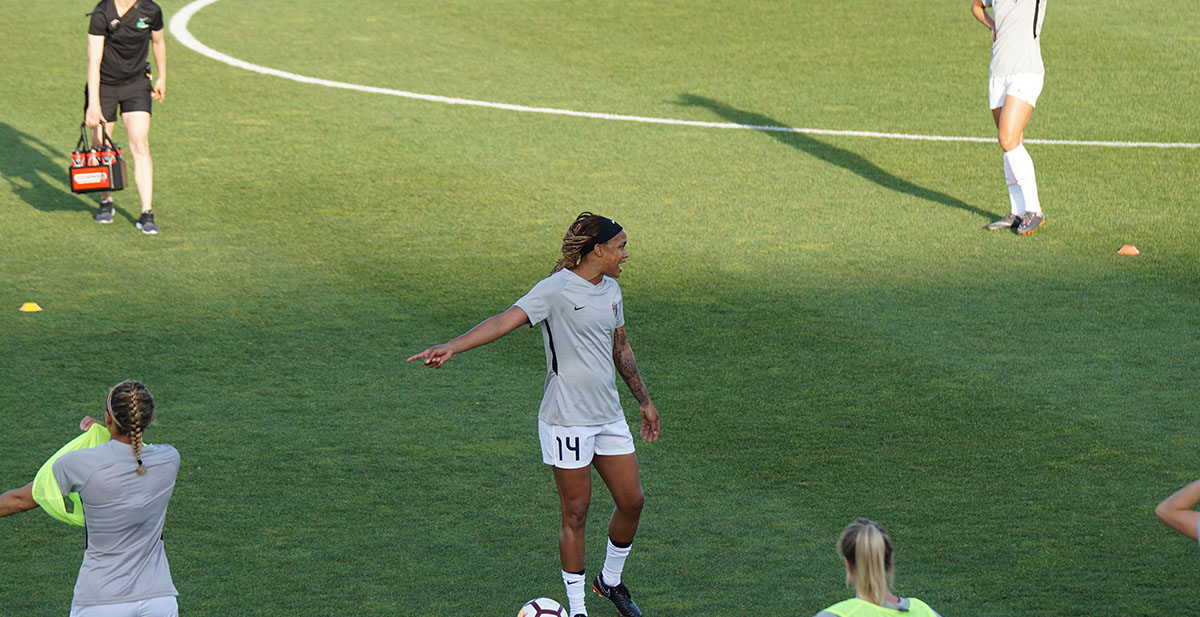
How Argentina’s Women’s Football Team Faced Sexism On Their Road To The World Cup
Sexist attitudes so outdated that we are so over it
Argentina’s women’s football team are set to play England on Friday and it’s been a tough road to even get there. This is certainly not down to a lack of talent but due to sexist attitudes deeply ingrained into Argentinian (and the rest of the world’s) society.
After drawing with Japan in Paris on Monday, the players looked elated they had achieved so much. A draw may not seem like cause for celebration but for this team, the draw was a positive step in setting the team as legit contenders in the football world. The Argentina team have not found much success during Fifa events of 2003 and 2007, scoring a negative goal difference of 31. Now the team is set to face England again, after playing against them twice before, winning 4-1 in 1971 but losing 6-1 in 2007.
The lack of success is unsurprising, only a year ago the team wasn’t sure whether they would make it to France at all. The federation had neglected and overlooked the Argentinian women’s team; we wonder why? Joking – it's because they are women. Ever heard those outdated remarks that football is a man’s game, the money is only in men’s football? These archaic attitudes are clearly shared by the Argentinian Football Association who showed little interest in a women’s team at all. The team was even marked as ‘unranked’ due to its inactivity. Carlos Borello, the team’s coach, was dismissed and not even replaced, this would not be the case if a man’s team was in question.
The lack of interest in a women’s national side reached its peak as they time didn’t even play any games from 2015-2017. The AFA eventually set up a friendly game in 2017 but the team was still not seen as worthwhile in the serious games.
In a seemingly hopeless industry that is women’s football, the team wrote a public letter in which they complained of the conditions they were working in. The sheer determination to make a stand led to the team refusing to appear for the national team again until the AFA met their demand of $8.50 per day for training, regular matches and access to training staff. The federation, of course, refused to meet these demands and instead placed the under-23 squad against Uruguay. The women’s team seemed invisible to the Argentinian Federation and just highlights their lack of understanding of the importance of female representation in football. Patriarchal societal values are only being reproduced by the AFA’s attitudes and show stagnation in Argentinian society as well as a blatant lack of respect for women.
These attitudes will be hard to dismantle because they run so deep. In 2018, the Federation published a guide to the World Cup in Russia, with a very important chapter on how Argentinian men can pick up Russian women. We hope you get the sarcasm. It’s no wonder when these views upon women are so openly accepted that the team struggled to find it’s feet.
In Argentina, the feminist #NiUneMenos movement, protesting against femicide, changed the narrative around feminism and begun to shift the position of women in society. Of course, this had a knock on effect to the world of football and Argentinian players gained an understanding of the importance of the feminist nature of women’s football. Team captain Estefania Banini said #NiUneMenos has ‘been very important and has given us a lot of support’. Banini highlights the importance of taking a stand ‘ It is important as women to raise our voices and let everyone know we are equal, that we want the same right’s. These ladies have got it right – if you want to change, go get it.
Player Macerena Sanchez gained media attention after taking legal action against her club and the AFA for not recognizing her as a professional. Her actions led to her receiving support from female writers and journalists and both local and regional politicians. The pressure of the federation was amped up and eventually they created one-year professional contracts for eight female players, of course, they were paid less than the men still, only $330 a month. This showed improvement but still shows a lack of respect for women’s football and the team prefer the term ‘feminist football’ as a result of the adversity they have faced.
As you can see, a draw against Japan may not seem like much a first glance, but after understanding the team history, it’s clear the adversity the team has faced has transformed the act of playing football and created ‘futbol femeinista’.











